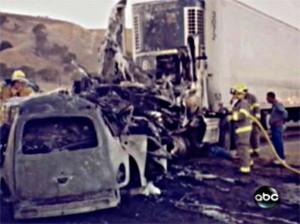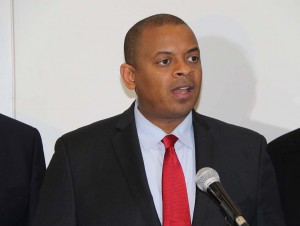
The Houck sisters were killed when their rental vehicle spun out of control and hit a truck head-on.
Years in the making and once the point of contentious debate and delay, the Safe Rental Car Act took effect today. The new law, passed late last year, bans rental companies with fleets exceeding 35 vehicles from using vehicles that are subject to recall until they’re fixed.
The ban is now in effect since has Congress has codified the prohibition in federal law.
“When a family picks up a rental car on vacation, they should be able to expect it is free of any known safety defect,” said Transportation Secretary Anthony Foxx in a statement. “I thank Congress and the safety advocates who helped turn this common-sense idea into law.”
The act came with a loophole that exempts used car dealerships and fleets of less than 35 vehicles, which accounts for the vast majority of dealership loaner and rental fleets.
The law was nearly a decade in the making in part because of resistance from the industry, although not the industry one might think. It was the initially auto industry that fought to keep the law off the books.
In 2004, two sisters, Raechel and Jacqueline Houck, were killed when the PT Cruiser they rented was crashed. The car was subject to a recall. In a 2010 verdict, a jury issued a $15 million verdict against Enterprise Rent-a-Car, concluding the company had failed to make fixes after learning of a Cruiser recall ordered because of a defect that could cause a driver to lose steering control.
Cally Houck, the mother of the two women, began a crusade to get a law on the books to ensure this would not happen to anyone else.
(Automakers continue to install defective Takata airbags. For more, Click Here.)
After the verdict came out, Enterprise and other rental car companies, including Hertz and Avis, agreed to follow the rules of what is now the law. Not only that, Chrysler, General Motors and Honda also came out in support of the measure. Others have since joined in their support, including AutoNation, which sells new and used vehicles.
However, the National Automobile Dealers Association expressed opposition to the bill. During testimony before a Senate subcommittee, then NADA President Peter Welch noted that “not all safety recalls render a vehicle unsafe to operate.”
Welch also suggested that the rental fleets of dealerships should be exempt from the law and that, in some cases, dealers do not have enough time or resources to repair their loaner or rental vehicles because they are working customer vehicles.
(Click Here for details about what’s new in 2017.)
That problem has really come to the fore with the Takata airbag debacle. The faulty airbags, which can explode too forcefully and send debris into the vehicle’s cabin injuring or even killing vehicle occupants, were initially part of a series of recalls accounting for 24 million vehicles.
However, recent decisions have expanded that by tens of millions of vehicles, creating substantial shortages forcing some manufacturers are repairing recalled vehicles not with approved or deemed safe replacement parts, but new versions of the faulty airbags because they’ve deemed “safer” than the existing problem components.
Four major automakers – Fiat Chrysler, Mitsubishi, Toyota and Volkswagen – continue to install some of the potentially deadly devices on their newest vehicles, according to a new Senate report.
(Tesla Model 3 buyers won’t get free lifetime use of superchargers. Click Here for the story.)
A number of manufacturers also are using defective Takata inflators as replacements for older airbags in about 2.1 million recalled vehicles. Federal regulators have approved that move as a temporary measure due to a shortage of replacements parts using newer, safer designs.

